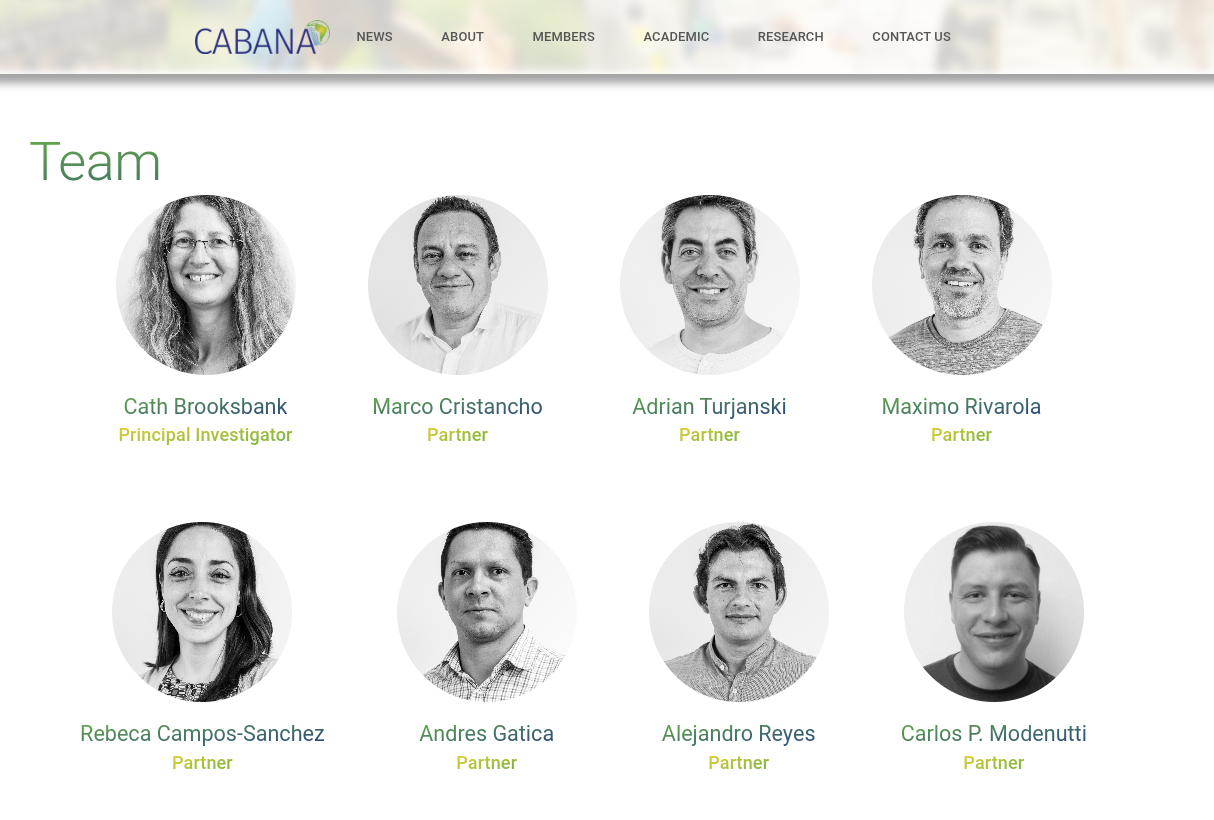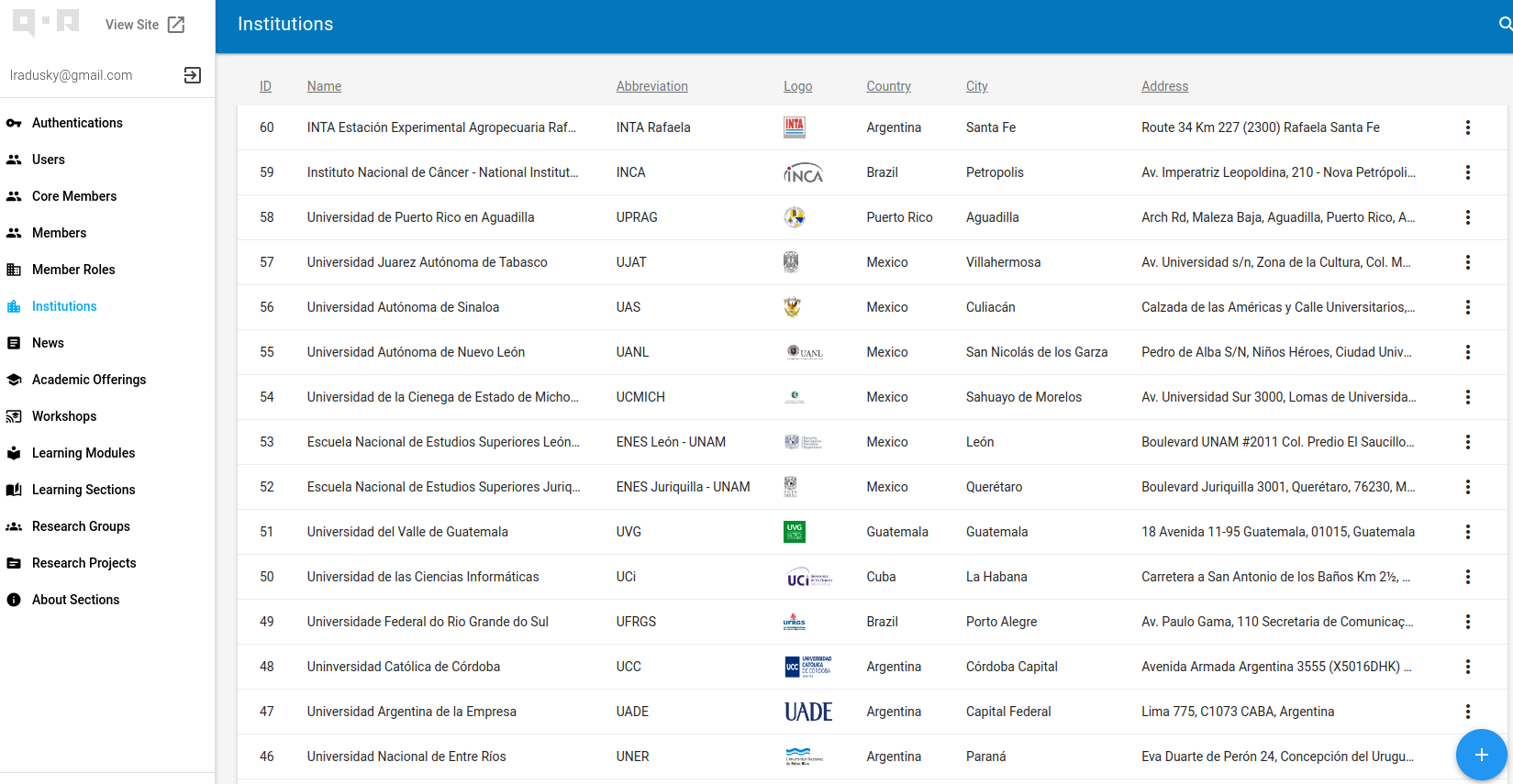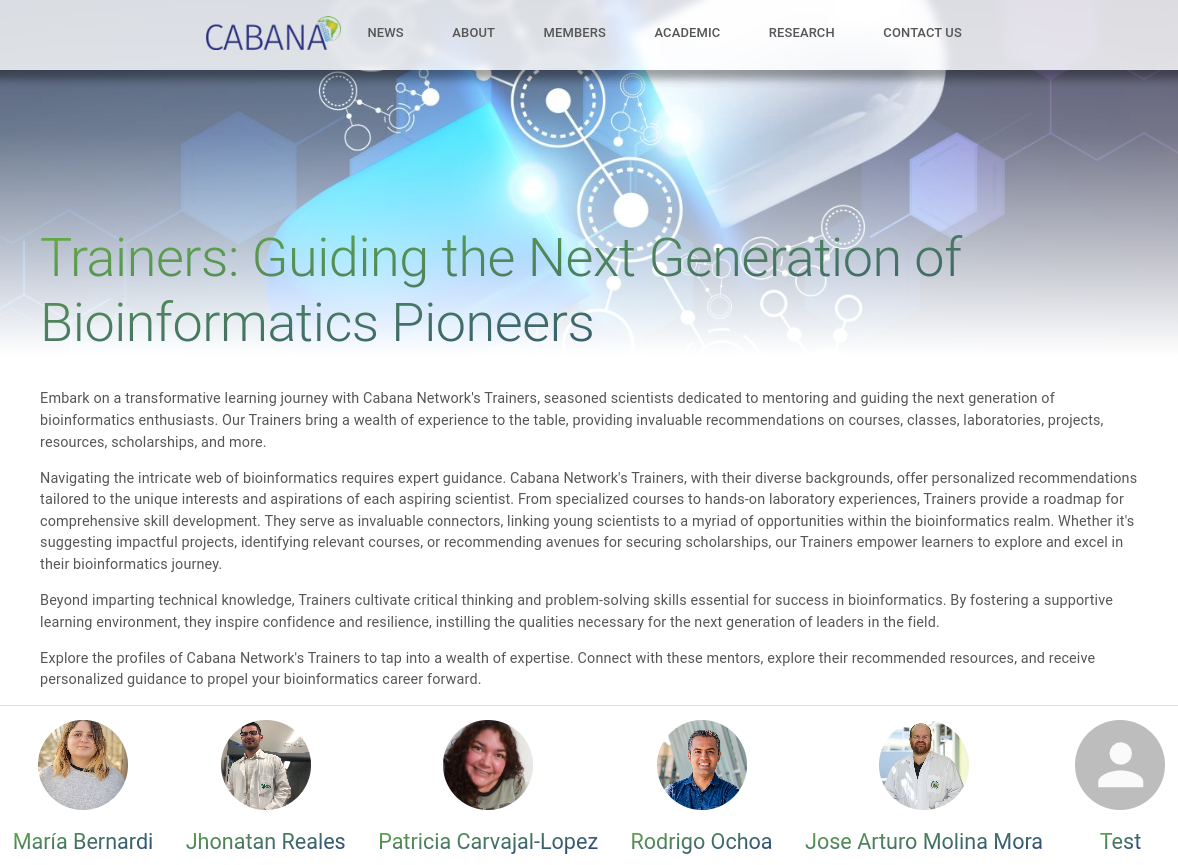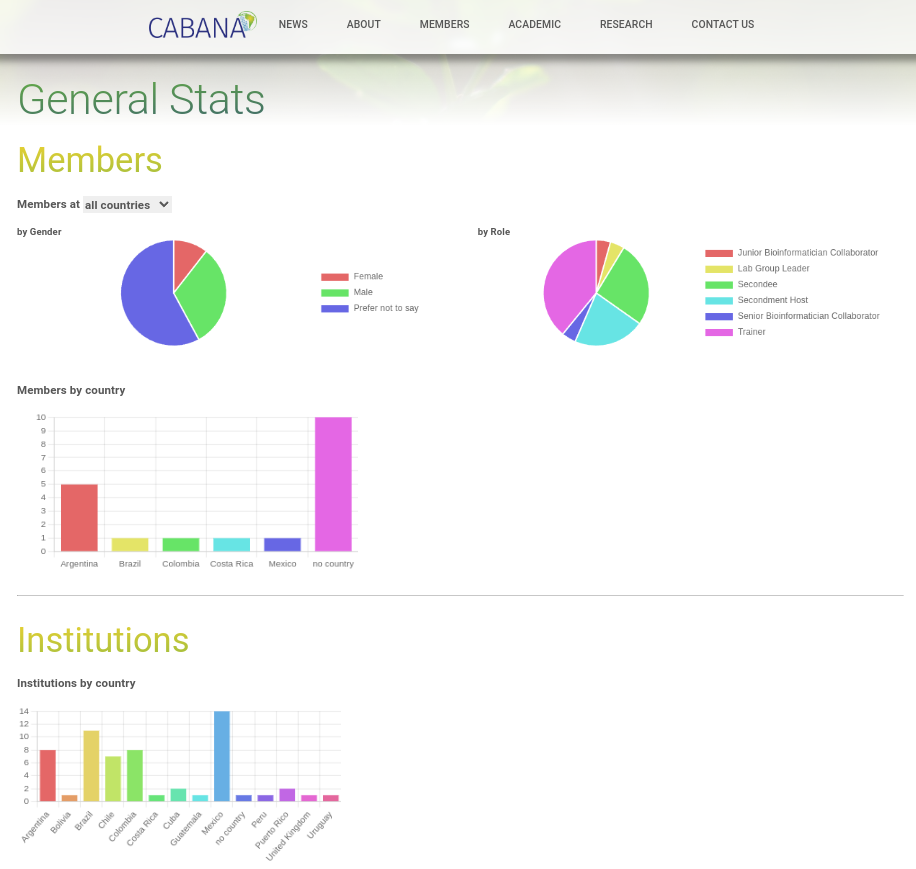Client
The CABANA consortium is an initiative dedicated to enhancing bioinformatics in Latin America and the Caribbean. Funded by the European Molecular Biology Laboratory and the European Bioinformatics Institute, CABANA represents a significant step forward in regional scientific collaboration.
The consortium is made up of 23 partners from 11 countries, including universities, research institutes, and scientific societies. The project is led by the University of Cambridge, and the EMBL-EBI is the main partner. The consortium’s goal is to provide bioinformatics training, capacity building, and research opportunities to scientists in the region.
Requirements & Context
When our involvement began, there was an existing website which needed significant rework to serve as a hub for the project, where they could share information about the initiative, its goals, and the partners involved. The website was also intended to share news and updates about the project, and to publish training materials they are developing.
The website needed to be multilingual, and it needed to be easy to update and maintain. The consortium also wanted to be able to track the impact of the project, so they needed a way to collect data about the users of the website.
Approach
We started by working with the client’s team to define the scope of the project, the modifications required, and to understand their needs and goals. We then focused on redefining the information architecture of the website, and discussing a redesign that would meet their requirements.
We employed a rapid development approach to overhaul the website. The user interface is built using React. The website was developed using Go. Gin was used for the web framework, GORM v1 for the data layer, and QOR for the admin framework.
About us
Shows the consortium members.

Project admin
Users with different permissions can manage the website’s content.

Features
Our rapid development strategy focused on key objectives:
- Unified Member Representation: We streamlined different member types into a single model with distinct roles (Lab Group Leaders, Bioinformatician collaborators, Trainers, Secondees and Secondment Hosts).
- Advanced User Permissions: We developed a system to manage various user types with specific permissions.
- Research Management Features: Implementing functionalities for handling research groups and projects.
- Forum Integration: Setting up an interactive platform for member communication and collaboration.
- Consortium Statistics Display: Creating a section for displaying key statistics about the consortium’s makeup.
Trainers
Shows the trainers involved in the project, with links to their profiles.

Statistics
Shows key statistics about the consortium’s makeup. Statistics are automatically updated as the consortium incorporates new members, projects and institutions.

Results
The result was a dynamic, informative, and user-friendly website, accomplished within a remarkably short timeframe. This rapid development cycle ensured that the CABANA consortium could swiftly benefit from an enhanced web presence, better reflecting its mission and activities.
Our work with CABANA showcases our commitment to rapid development and high-quality output.
Contributors

Manuel Moreira Account & Project Manager

Ana Pérez Ghiglia Principal Engineer

Ismael Bejarano Full-stack Engineer

Leandro Radusky Alumni